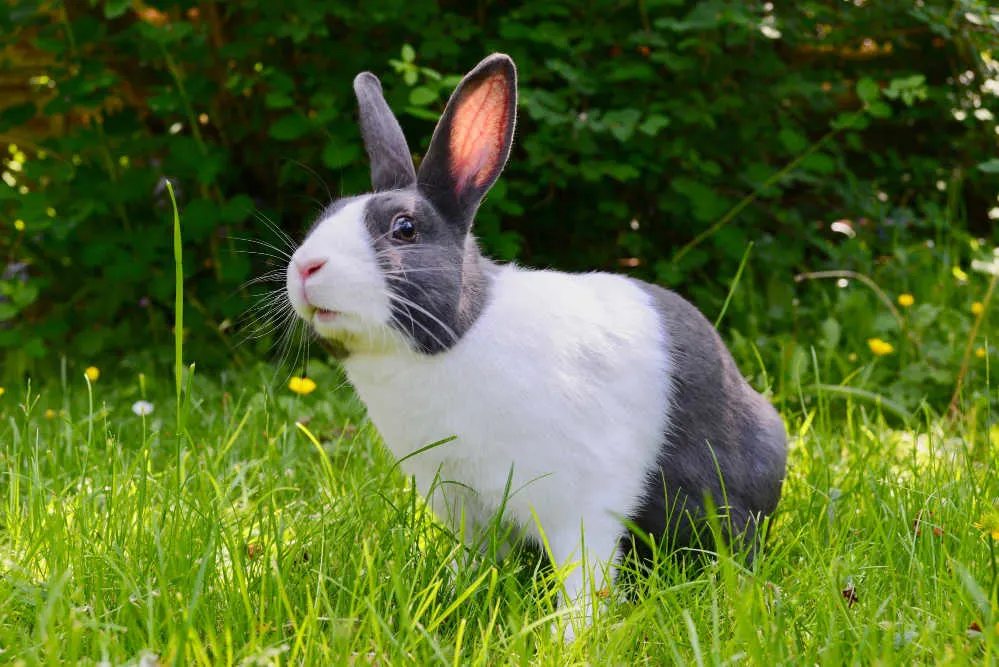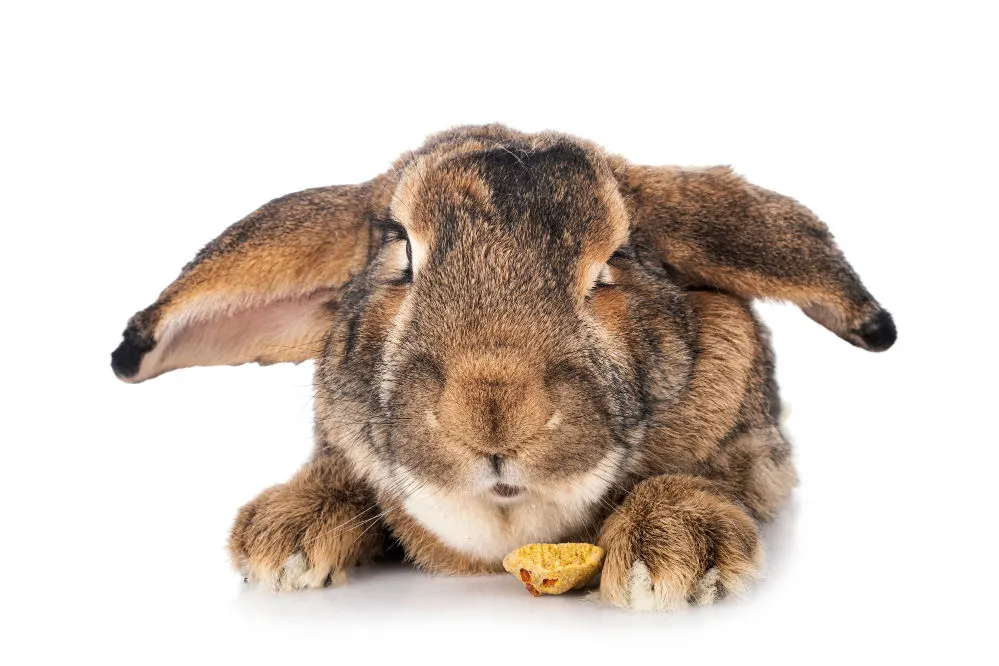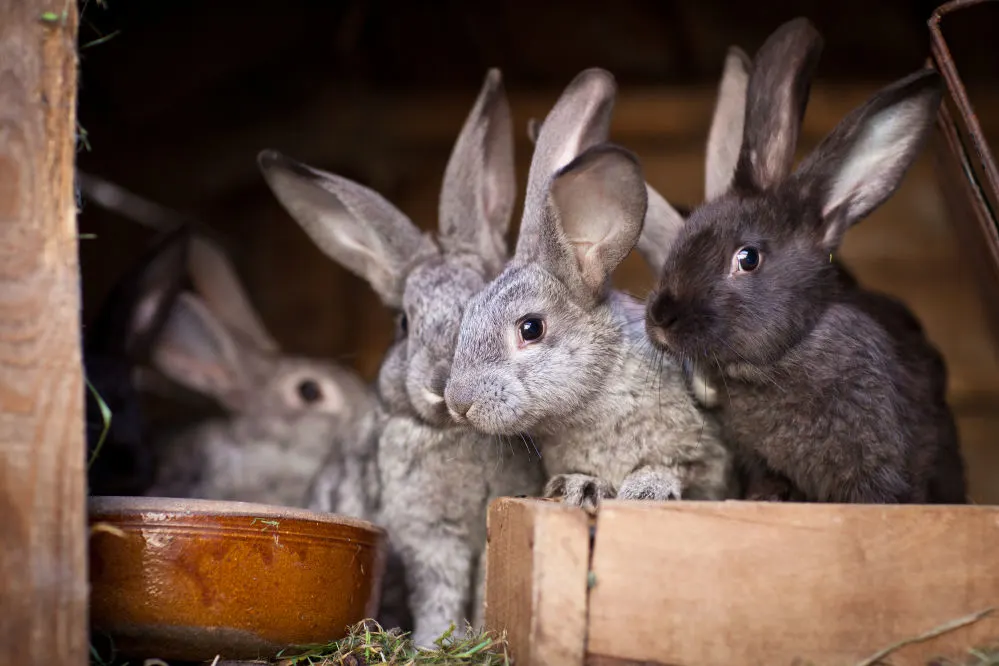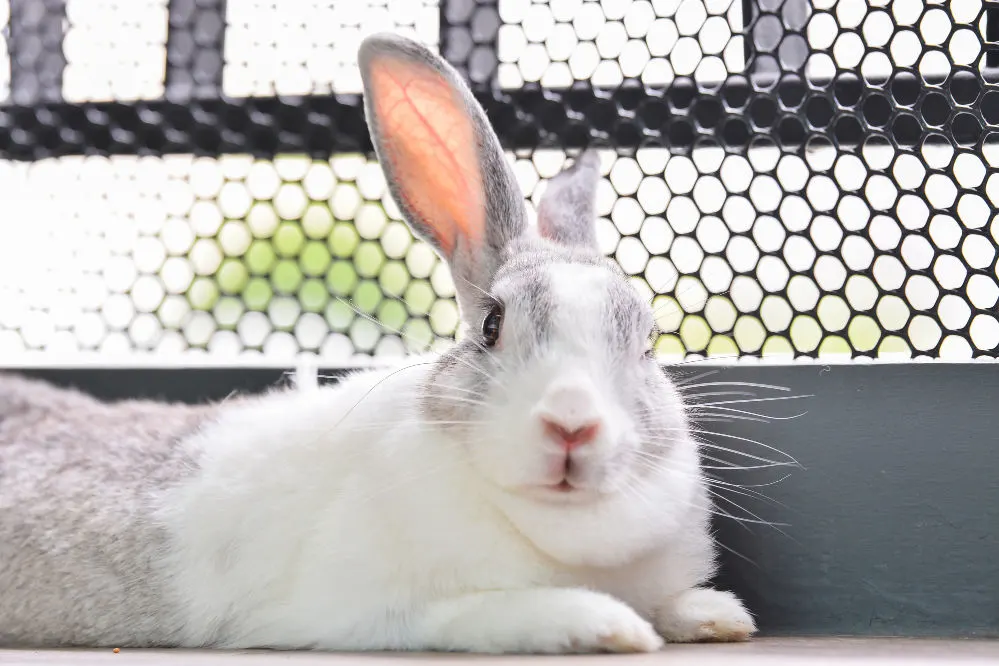Every pet parent knows a big part of any pet’s health and happiness is the food you feed it. It’s tricky balancing between providing the essentials and spoiling your fur baby rotten. But it’s important to remember certain tips for optimum pet health.
Those lucky (and patient) enough to have thriving gardens with fresh foods, like various vegetables, might feel overwhelmed. You’ve probably often wondered what’s the best food for your rabbit, no matter the rabbit’s breed.

You’ve come to the right place for information about one of the best foods to feed rabbits: squash. This will broaden your knowledge, encouraging you to make the best food choices for your furry friend.
What do rabbits eat? Typical healthy diets
Rabbit diets differ for house and wild rabbits. Rabbits, which are herbivores, feast on fresh greens in the wild. They get their important nutrients from grass, clover, weeds, and herbs. Sometimes, wild rabbits also nibble on tree bark.
Domesticated rabbits, particularly the best indoor rabbits, are different. They enjoy a broader meal plan, from hay and fresh foods to specialized food pellets. Pet food professionals recommend that dried grass (hay) and freshwater be available at all times.
Here’s a helpful breakdown to act as a guide for a healthy rabbit diet:
- 75% fresh leafy greens
- 15% other veggies
- 10% fruits
What constitutes a balanced diet?
Rabbit diets have to be high in fiber. As you can imagine, experts and veterinarians will have differing recommendations. A slightly contrasting breakdown to the one above reveals the following:
- 80% Timothy Hay (one of the best quality hays)
- 10% leafy green vegetables
- 5% fruits
- 5% high-nutrition pellets
Play around with these percentage variations and mix up the different food categories, taking into account your rabbit’s preferences and favorites. As always, everything should be in moderation.
Types of squash that are safe for rabbits
It’s good to know that you can switch it up between the different types of squash and still ensure your bunny is getting the right nutrients. Diversify their diets by introducing strictly managed and infrequent amounts of the following preferred squash types:
- Zucchini squash: contains fiber, water, and vital minerals.
- Butternut squash: excellent source of vitamins A and E.
- Yellow squash: low in sugar content.
- Acorn squash: contains calcium, iron, and magnesium.
- Pumpkin: offers manganese, zinc, vitamins A and B, iron, magnesium, and calcium.
Best rabbit foods: Getting the most from squash
Squash gives rabbits the fiber and vitamins (particularly A, C, and E) they need for good all-around health. Although nutrient-rich, it also contains sugar (a starch), so rabbits should be given limited quantities. Squash also has traces of magnesium and potassium.
Three types of squash are most popular: butternut, yellow, and zucchini. These edible squashes are not just delicious vegetables but varied foods you can use to create a colorful diet plan for your beloved four-legged furry. Squash is best served as a periodic treat.
Butternut and yellow squash, with a delicate balance of fiber and sugar, are two excellent squash types for rabbits. They contain beta-carotene, an essential nutrient for rabbits.
As a general rule of thumb, only give your rabbit squash as a treat, and no more than 0.83 oz (23.5 grams) of squash for every one lb (0.45 kg) of your bunny’s weight. But let’s shift the attention to another top squash type for rabbits: zucchini squash.

More pet parents are experimenting with it because it is beneficial for rabbit health. Also, it’s more exotic and exciting than the other standard squash types.
Zucchini squash
Zucchini (or courgette), when included in your rabbit’s diet, offers vitamins and minerals, helping with central nervous system support and function. It also contains antioxidants that help fight illness-causing free radicals.
For some experts, zucchini (like most vegetables we extract nutrients from) is best served raw. However, there are pet parents who prefer cooking all squash before serving.
Adult rabbits chew through the zucchini skin (i.e., unpeeled); they don’t struggle with the soft seeds. Rabbits also enjoy a good munch on fresh zucchini plant flowers and leaves. Like all squashes, limit giving too much zucchini to rabbits, as this can cause a troubling gastrointestinal (GI) stasis in rabbits.
Top Tip: Delay giving zucchini to young rabbits, even as a treat. Their sensitive gastrointestinal tracts can’t handle it. Baby rabbit stomachs aren’t fully developed enough to digest most fruits and vegetables until they are three months old.
Health benefits of squash for your pet rabbit
The best thing about squash is its high nutritional value. It’s one of the safest rabbit foods, providing your bunny with a tasty snack that promotes health (in controlled amounts).
As it contains the right minerals and vitamins, squash health benefits include boosted immunity (and vision) and a healthy, well-maintained bone structure.
The low squash calories mean no rabbit will gain weight under your watch. But this is up to you, considering you’re in charge of serving portions, frequency, and times. Squash is also rich in water, perfect for rabbit hydration.
Preparing squash for your rabbit
To see the best results in your rabbit’s enjoyment of their squash treat, chop small pieces of squash which you can mix with your rabbit’s food. The cooked versus uncooked debate is a spirited one. Some experts prefer raw squash; others insist on cooking it (e.g., quick steaming).
Whichever way you choose, remember that all squash pieces should be a manageable size (to avoid creating a choking hazard). A side bowl of clean water at all feeding times is a must.
If squash is new to your rabbit, introduce it slowly (with much patience) until it gets used to it. The preparation method for cooked squash is quick, easy, and simple:
- Dice into small pieces
- Steam until soft (do not overcook)
- Mash with a fork (and mix with other rabbit food, e.g., pellets or fresh hay) OR leave in small cubes (feed as a separate treat)

Types of squash that are safe for rabbits
It’s good to know that you can switch it up between the different types of squash and still ensure your bunny is getting the right nutrients.
Diversify their diets by introducing strictly managed and infrequent amounts of the following preferred squash types:
- Zucchini squash: contains fiber, water, and vital minerals.
- Butternut squash: excellent source of vitamins A and E.
- Yellow squash: low in sugar content.
- Acorn squash: contains calcium, iron, and magnesium.
- Pumpkin: offers manganese, zinc, vitamins A and B, iron, magnesium, and calcium.
Dietary and health concerns | Things to remember
Check out these fundamentals when it comes to rabbits and squash:
- Avoid overfeeding squash to rabbits. This will cause weight gain and digestive problems, like an upset stomach. Limit quantities and monitor any changes or adverse effects if they occur. It will also reduce the amount of hay and other leafy greens that they eat, which can lead to digestive issues.
- Use a moderately-sized rabbit food bowl for portion control.
- What makes Timothy Hay one of the best kinds? It helps rabbits’ dental health by limiting how big their teeth grow. Suitable-sized teeth are important for proper chewing.
- Wash all squash thoroughly before preparing it for your rabbit. This will remove excess pesticides and chemicals harmful to your fuzzy friend.
- Avoid overly ripe vegetables and fruits when feeding your rabbit. They are the leading cause of rabbit diarrhea.
Signs of a health problem
When all is not well, the human body communicates ill health to us. The same is true for rabbits. Learn to detect a health problem in your rabbit by analyzing changes in behavior. This is easy when you know useful information, like when rabbits sleep.
One of the tell-tale signs of a health problem is visible in altered eating habits. Call your veterinarian immediately and arrange a check-up if you notice any of these four major health problems after feeding your bunny squash.:
- Excessively licking, scratching, or itching of the paws and skin
- Loose stools or diarrhea
- Lethargy
- Lack of appetite evident in a refusal to eat
Frequently asked questions
Can rabbits eat bell peppers, radishes, and watermelon?
Yes, they can, as long as you’ve removed the seeds in fruits like watermelon.
What squash type is best for rabbits?
Butternut, yellow, and zucchini squash have a high fiber and nutrient content, vital for overall rabbit health. Pumpkin and even the lesser-known acorn squash are safe as well, although less popular than the other three.
How much squash is too much squash?
Small amounts of squash suffice at a time. Some experts suggest that 0.83 oz (23.5 grams) of squash for every one lb (0.45 kg) of your bunny’s weight will suffice. You’ll know your portions and regularity are off by assessing your fluffballs weight gain and digestion difficulties.
Last thoughts on the best foods | Squash for rabbits
Squash is one of the best foods for your rabbit, but it should be given in moderate amounts. Portion control and balanced diets aren’t just for humans. Our precious pets need these things carefully considered and managed too.

A happy, healthy rabbit receives a high-fiber diet with all the essential nutrients. Give squash to your rabbit in small amounts. Watch that your squash servings aren’t regular enough to cause digestive problems or other health issues.
When you’re ready to switch from rabbit food to rabbit homes, we have brilliant rabbit house ideas to inspire you.
Steph Dyson is a travel journalist by trade but a lover of all small pets. She’s been a pet mum to everything from gerbils to guinea pigs, rabbits to hamsters, and fish to dogs of all shapes and sizes. She wants to share her years of experience with small pets and make Small Pet Guides the go-to website for pet owners seeking information and care advice.

